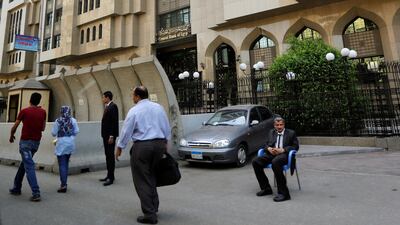Egypt plans to return to the international debt markets in January to raise as much as US$4 billion to fund the budget deficit, a finance ministry official said.
The ministry may approach investment banks to select advisers for the possible sale within three months, the official told Bloomberg on condition of anonymity. The amount and the timing would depend on market conditions, the official said.
The Egyptian finance minister Amr El Garhy said this month in comments published by the state news agency that Egypt was looking to raise between $2bn and $4bn in the first quarter of 2018. With local borrowing costs above 15 per cent, the government plans to tap global debt markets again to capitalise on growing investor confidence after it floated its currency and cut costly energy subsidies. The steps helped seal a three-year $12bn loan programme from the IMF in November.
______________
Read more:
The top 5 fastest growing tourism destinations for 2017
Egypt to hold auction for oil exploration
_______________
The country raised $7bn from the sale of Eurobonds in the fiscal year that ended in June, including $4bn in January consisting of five, 10 and 30-year bonds with yields of 6.125 per cent, 7.5 per cent and 8.5 per cent, respectively.
The government faces a financing gap of about $10bn for the current fiscal year, the official said. Much of that is expected to be plugged by loans agreed with multilateral lenders including the IMF, which is due to disburse the second $4bn instalment of its facility. The nation is also expecting to receive the last $1bn instalment of a three-year World Bank loan and the last $500 million from the African Development Bank.
Egypt had a budget deficit of about 11 per cent of economic output as of the end of June. The country is rated B3 at Moody’s Investors Service, six levels below investment grade.

